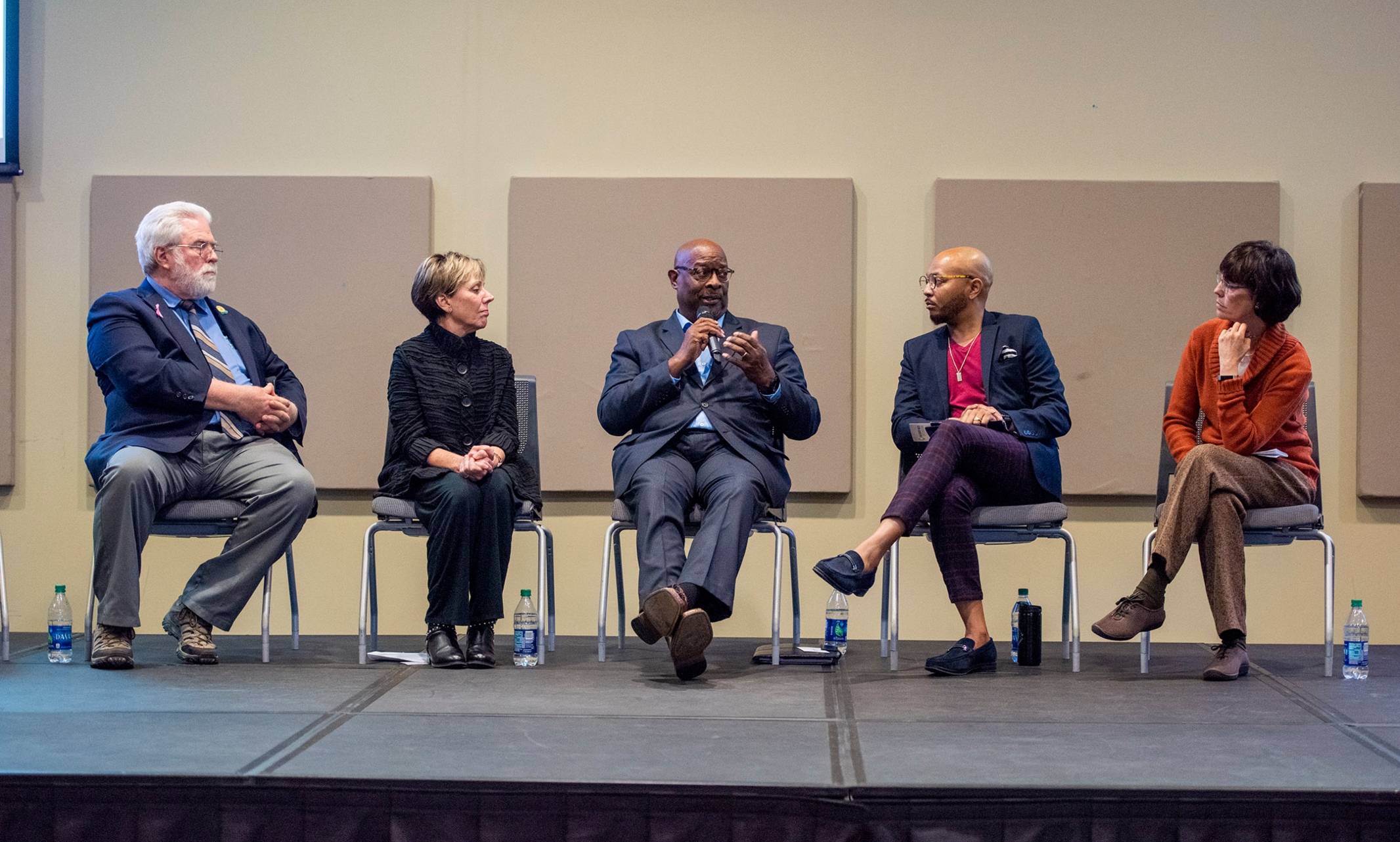Health equity is a broad concept that encompasses differences in disease and mortality rates, and in access to healthcare services, among different population groups. It also includes differences in social determinants of health, such as poverty, exposure to toxins and access to healthy food.
UMKC leadership quantifying and addressing these differences was the focal point of the UMKC Engagement Showcase, the university's signature event celebrating Engagement Week – a special week of engaged leadership, partnership and learning hosted by UMKC and the UM System.
The event included a demonstration of the System’s new online Engagement Portal and a panel discussion on health equity led by the director of the new UMKC Health Equity Institute, Jannette Berkley-Patton, Ph.D., of the UMKC School of Medicine.
Engagement with community partners by the UM System and its four universities is hardly a new phenomenon. Curt Crespino, UMKC vice chancellor for external relations and constituent engagement, noted that UMKC history is rooted in an enduring city-campus partnership.
Marshall Stewart, chief engagement officer for the UM System, said what’s new is a more systematic and coordinated approach to engagement, including a transformation of the system’s Extension programs, designed to expand engagement beyond Extension’s original rural focus to forge engagement partnerships in every community and corner of the state.
“Urban and rural communities are facing very similar issues across Missouri. Our mission is to work together with all of our stakeholders to expand our impact by using our research to help transform lives,” said UMKC Chancellor Mauli Agrawal. “That spirit of connection to the city and engagement with our community was woven into the origin story of UMKC. And we are excited to take those efforts to the next level in collaboration with the efforts being led by the system.”
Following are excerpted highlights of the health equity panel.
Jannette Berkley-Patton, director, UMKC Health Equity Institute:
“We spend billions on healthcare but are still one of the unhealthiest countries in the world.” The burden of health disparities rests primarily on groups outside the mainstream, including people of color, rural communities, veterans and seniors. Large federal grants allow for the creation of effective programs, “but what happens when the grant ends? Everything goes away. We need to figure out how to take the Cadillacs we create with these million-dollar grants and turn them into Pintos.”
Rex Archer, director, Kansas City Health Department:
“We need to change the structural issues that create the (health equity) problem.” These include issues with disparities in housing, poverty, education, safety and more.
Mary Anne Jackson, interim dean, UMKC School of Medicine:
In 2014, the Kansas City area had to contend with a large outbreak of a serious respiratory illness among school-age children. Researchers were notified early enough to identify the virus responsible and contain the outbreak. “We were able to address this in time because of the strong connections we have with people in the community who brought it to our attention.”
Eric Williams, pastor, Calvary Temple Baptist Church:
Conducting funerals for victims of gang violence and AIDS led Williams to involvement in public health. “Conversations about HIV were happening, but it was all on the down-low. (Berkley-Patton) helped us to understand that some of the things we were already doing were working” to change behaviors.
Rashaan Gilmore, founder and director, BlaqOut:
BlaqOut surveyed gay African Americans about their health care priorities, and the top response was health care access. “It was because they didn’t feel welcomed by traditional providers. We asked them to recommend strategies to address that, and we developed interventions based on those results.”
Bridget McCandless, former president and CEO, Health Forward Foundation:
After 15 years working in a free health clinic, she changed her approach from providing care to impacting policy “because I saw that policy could be far more effective.” Citing a sampling of dramatic health disparities between local white and black populations, she said “there’s no excuse for us to have disparities like that.” Data analysis can empower highly effective strategies if we act on the findings. “We’re getting smart enough to figure this out. (Data-driven policy) can be the new germ theory; it can revolutionize the delivery and effectiveness of health care.”

